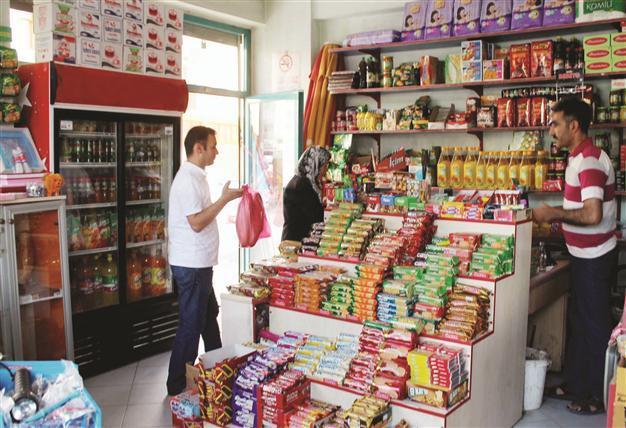Restrictions on alcohol sales go into effect today in Turkey
Güneş Kömürcüler ISTANBUL / ANKARA – Hürriyet Daily News

Retailers will no longer be allowed to sell alcoholic drinks between 10 p.m. and 6 a.m., and the sale of alcohol near schools and places of worship will also be forbidden. DHA photo
The controversial law placing limits on the sale and advertising of alcoholic beverages in Turkey takes effect as of today (Sept. 9), despite ongoing criticism.Retailers will no longer be allowed to sell alcoholic beverages between 10 p.m. and 6 a.m., and the sale of alcohol near schools and places of worship will also be forbidden, according to the bill. The new law will go into effect at midnight before switching over to the times listed above thereafter. Critics say there will inevitably be violations of the new law.
“I am sorry to say this, but many of us retailers will sell alcoholic beverages during the banned hours, as this is when we sell most. I do not understand why the government passed such regulations. The government takes high taxes from the consumption of those beverages. The new regulations will bring nothing but illegal sales,” a small shop owner on the Asian side of Istanbul told the Hürriyet Daily News.
“I have a legal permit to sell alcohol and there are no schools or places of worship within 100 meters of my shop. But what if somebody wants to launch a school or establish a mosque around my shop? What will happen then?” he asked.
The new law bans all retailers from selling alcoholic beverages at night, but not restaurants or other facilities. There are 200,000 small retailers that will be affected, according to official data.
“These 200,000 people earned much of their revenue from their alcohol sales at night, but no longer.
This is not fair for them,” Confederation of Turkish Craftsmen and Tradesmen (TESK) head Bendevi Palandöken told the Hürriyet Daily News yesterday in a phone interview.
“This regulation may unfortunately trigger illegal sales and lead to the reports being made in neighborhoods. Imagine a man who does not like a retailer in his neighborhood. He may accuse the retailer of selling alcohol illegally at night. This is not good,” Palandöken said, also questioning who would be responsible for monitoring whether the regulation was implemented.
“Who will be responsible? The police, municipalities, or others? We, as the retailers, want some revisions to be made to the new law immediately,” he added.
Alcohol consumption already low in Turkey
The government says the law will protect the population, particularly young people, from the harmful effects of alcohol.
It aims to reduce the consumption of alcoholic drinks and tobacco products, partly by increasing the Special Consumption Tax on such products, according to Euromonitor International’s latest report on Turkey. For example, the traditional drink rakı retailed at an average price of 9.15 liras in 2002, rising to 51 liras by 2012. The tax on beer rose 737 percent between 2002 and 2009, with taxes increasing 45 percent between 2009 and 2010 alone, the report read.
Many sector representatives, however, say that such restrictions are not necessary in Turkey, as the consumption of alcoholic beverages is already very low. According to World Health Organization (WTO) figures, Turkey’s alcohol consumption rate is only 3.4 liters of alcohol per capita annually, which is significantly below the global average. For instance, it is round 19 liters in Moldova and 14.8 liters in South Korea.
“We are talking about Turkey. There are many places, both retailers and restaurants, that sell alcoholic beverages in the big cities. There are not, however, any restaurants serving alcoholic beverages in many other cities. What are the people living in these cities, but who want to drink alcohol at late hours supposed to do?” said a sector representative, who wished to remain anonymous.
Many advertising campaigns will also be completely banned, such as promotions, sponsored activities, festivals and free giveaways. The only exception will be fairs aimed at the international marketing of alcoholic beverages.
Many companies have already stopped their ads. Diageo, the world’s largest distiller of alcoholic beverages, expressed concern about the legislation when the draft was first discussed in Parliament in May. In 2011, it acquired Mey İçki, a producer of the traditional Turkish spirit rakı, for $2.1 billion.
The company said in a statement that it was “very saddened” by the passing of the legislation.
















